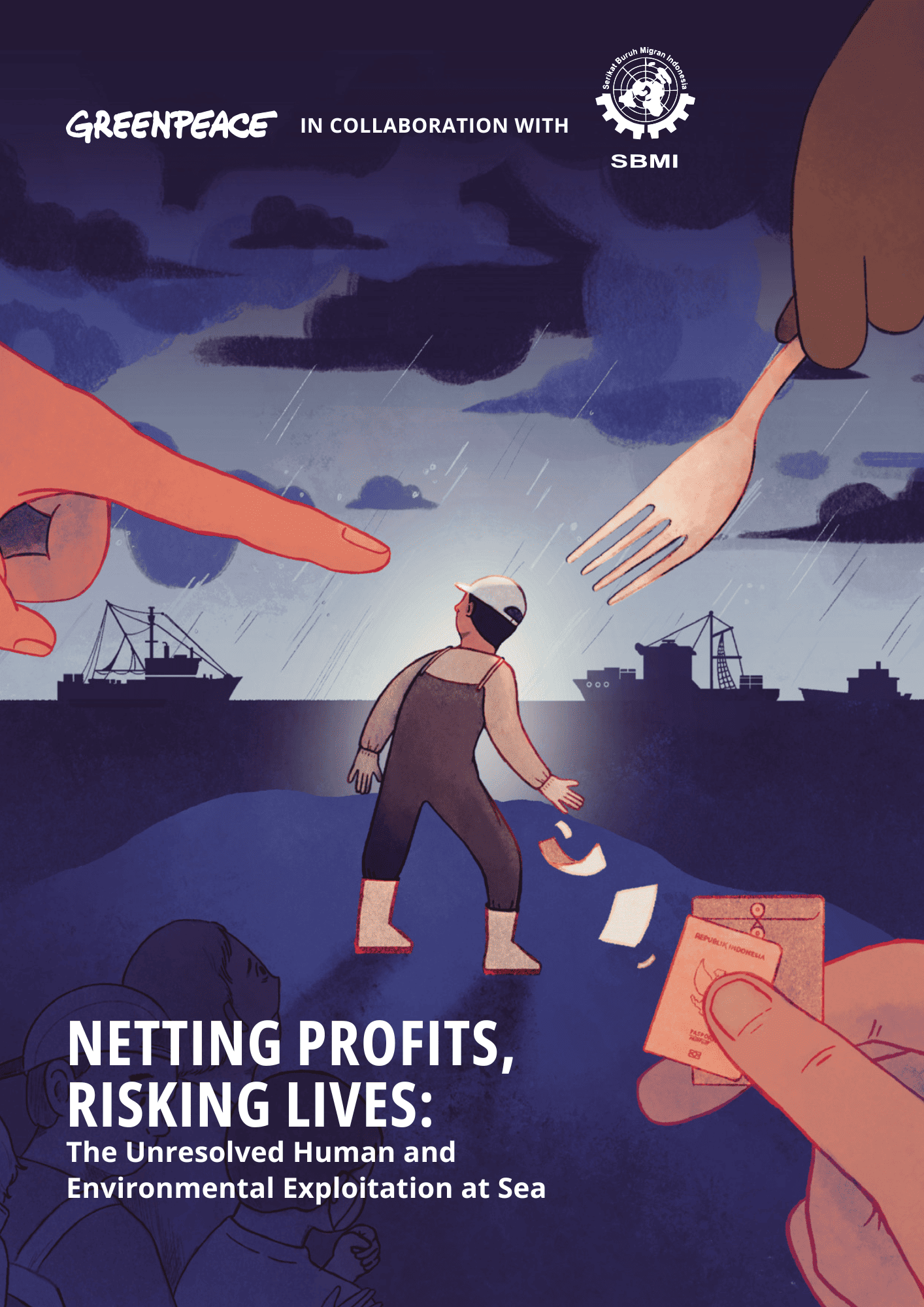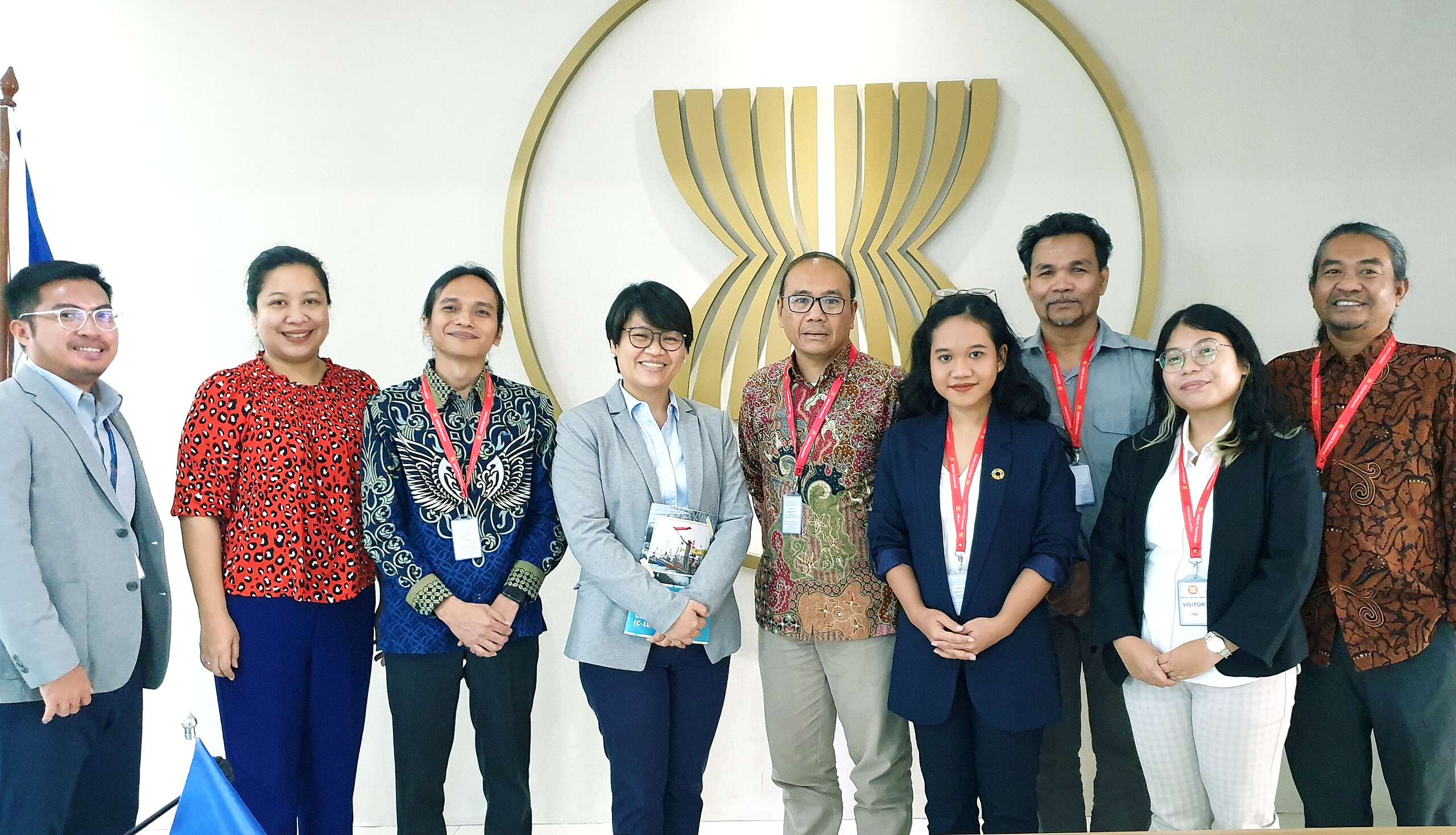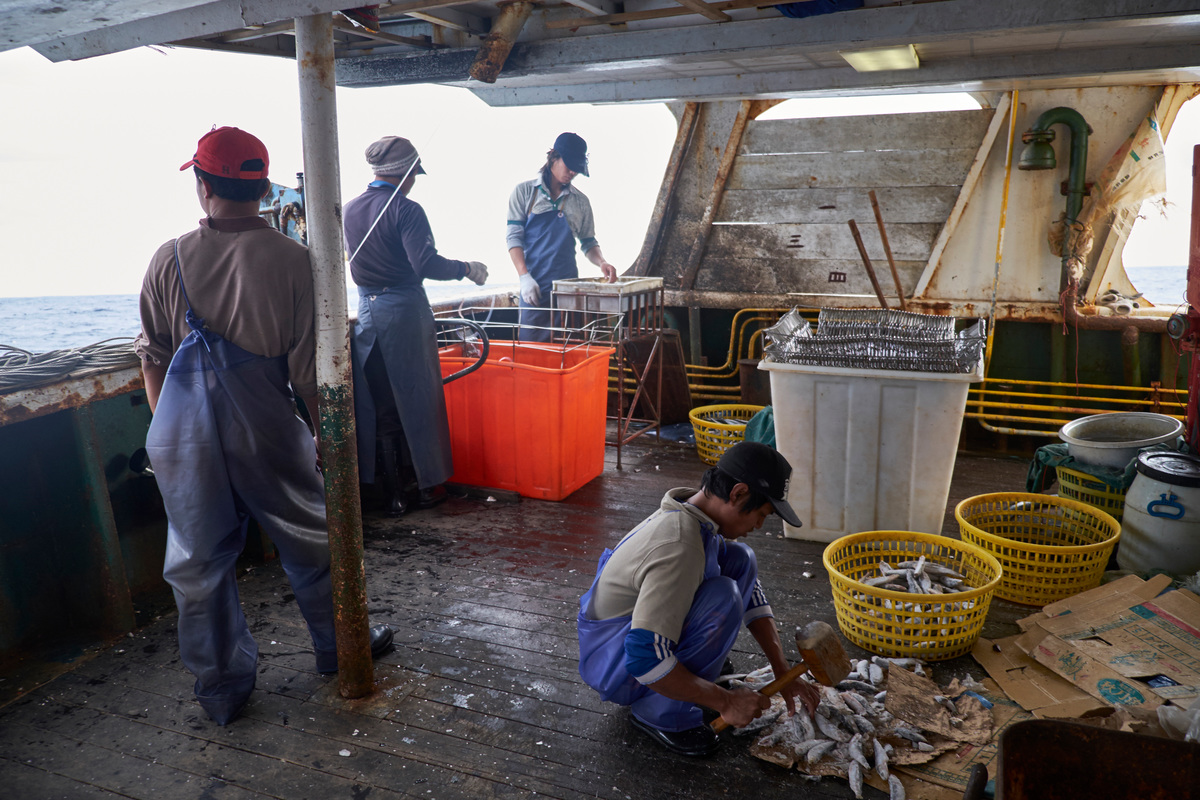Executive Summary
From September 2014 – July 2020 a total of 338 complaints of forced labour at sea were reported to Serikat Buruh Migran Indonesia (SBMI)1 – the Indonesian Migrant Workers Union), a non-profit organisation that seeks to bolster the welfare and rights of Indonesian migrant fishers. In 2020, 104 complaints were submitted – the highest number received to date – an increase from 86 complaints received in 2019.
In this report, a follow up to “Seabound: The Journey to Modern Slavery on the High Seas” (2019)2, Greenpeace Southeast Asia analysed complaints from Indonesian migrant fishers over a 13 month period between 2019 – 2020 to show how forced labour indicators have increased. Through examination of documents, interviews with the complainants, and cross referencing with relevant media reports, Greenpeace Southeast Asia identified the top forced labour indicators to include withholding of wages (87%), abusive working and living conditions (82%), deception (80%), and abuse of vulnerability (67%).
The complaints came from 62 Indonesian migrant fishers on 41 fishing vessels and four refrigerated transport vessels known as reefers all suspected to have been involved in the forced labour activities. The suspected vessels include 14 purse seiners with 55 complaints, 11 handliners / squid jiggers with 16 complaints, 10 longliners with 11 complaints, six vessels of unknown fishing gears with 16 complaints, and four reefers with 20 complaints. Twenty Indonesian manning agencies and 26 vessel owners were also allegedly involved in forced labour.
In order to protect the rights of migrant fishers and stop forced labour at sea, Greenpeace recommends a priority list of action points as follow:
- Governments in the fisheries supply chain should ratify and implement ILO C-1883 and ILO fundamental conventions4;
- Governments should ratify and implement the FAO Port State Measures Agreement5;
- Governments should ratify and implement the IMO Cape Town Agreement6;
- Governments of origin of the migrant fishers should establish and implement policies that protect labour rights, including but not limited to:
- Recruitment of workers through formalised channels; and
- Zero recruitment fees;
- Fishing companies that recruit migrant fishers should ensure that all fishers receive no less than 10 hours rest in any 24-hour period;
- Fishing companies, traders, processors, and brands should ensure that workers have access to secure, anonymous, confidential, and independent complaint mechanisms with strong protections against retaliation;
- Fishing companies, traders, processors, brands, end-buyers, and investors should uphold the corporate responsibility to respect human rights as defined by the UN Guiding Principles on Business and Human Rights (UNGPs)7;Buyers should only source from vessels that spend a maximum of three months at sea before going to a port and allow crew unfettered access to port services for a minimum of 10 days;
- Buyers should prioritise sourcing from vessels subject to port state labour inspections and shown to be compliant with C-1888 and the ILO fundamental conventions9; and
- Fishing companies, traders, processors, brands, end-buyers, and investors should publicly disclose information on the entire supply chain including vessel owner, vessel name, fishing gear, and species caught.
These undertakings, coupled by meaningful intergovermental collaboration and sharing of information among key governments and non-government actors – such as labour and fisheries administrations, the private sector, migrant fishers and their organisations, among others – intends to pressure all involved governments to establish immediate measures to end modern slavery at sea and strengthen the fight against illegal, unreported and unregulated (IUU) fishing.
Download the full report HERE
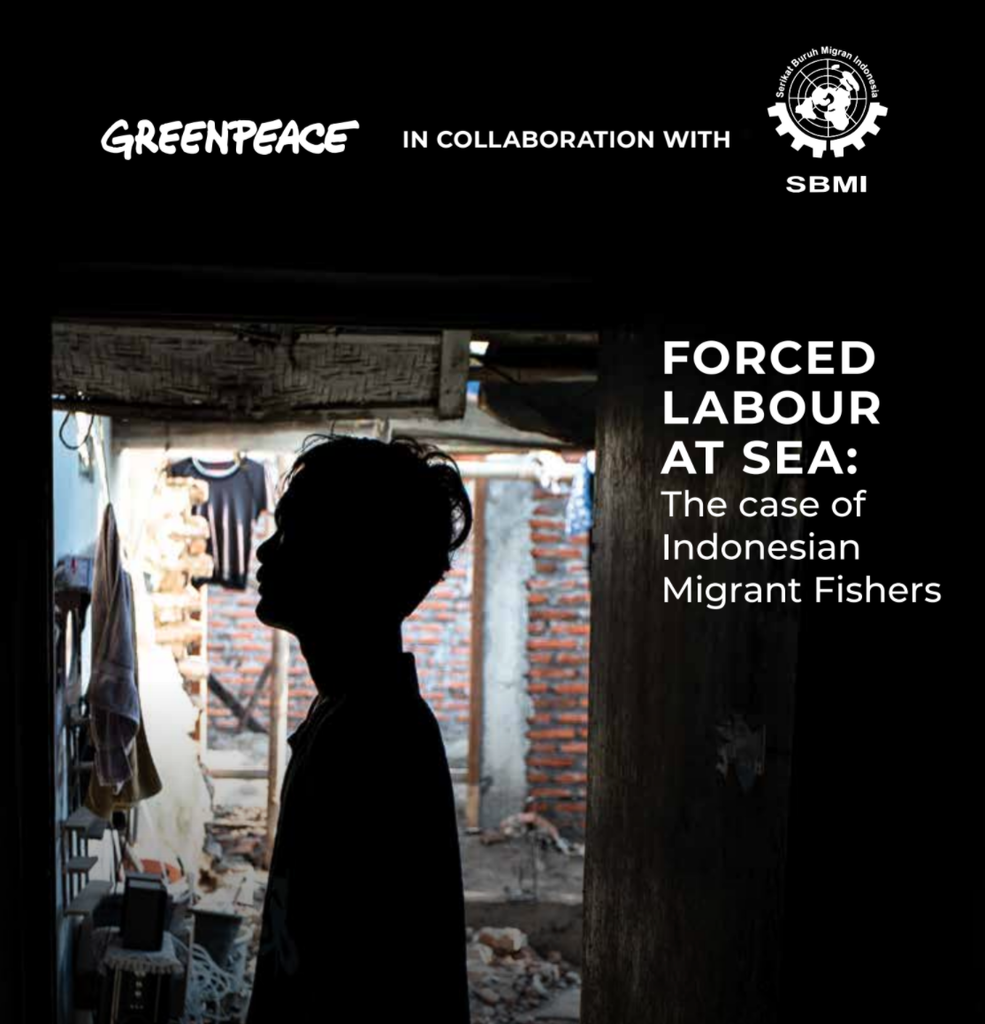
References:
[1] SBMI website https://sbmi.or.id/
[2] Greenpeace Southeast Asia. 2019. Seabound. The journey to modern slavery on the hign seas. https://www.greenpeace.org/southeastasia/publication/3428/seabound-the-journey-to-modern-slavery-on-the-high-seas/
[3] International Labour Organization. 2007. C188 – Work in Fishing Convention, 2007 (No. 188). https://www.ilo.org/dyn/normlex/en/f?p=NORMLEXPUB:12100:0::NO::P12100_ILO_CODE:C188
[4] International Labour Organization. Conventions and Recommendation. https://www.ilo.org/global/standards/introduction-to-international-labour-standards/conventions-and-recommendations/lang–en/index.htm
[5] Port State Measures Agreement. http://www.fao.org/port-state-measures/background/en/
[6] Pew Charitable Trusts. 2018. The Cape Town agreement explained. https://www.pewtrusts.org/-/media/assets/2019/09/ctaexplained_brief.pdf
[7] United Nations. 2011. Guiding principles on business and human rights. Implementing the United Nation’s “Protect, Respect, Remedy” framework. https://www.ohchr.org/documents/publications/guidingprinciplesbusinesshr_en.pdf
[8] Ibid Endnote 3
[9]Ibid Endnote 4
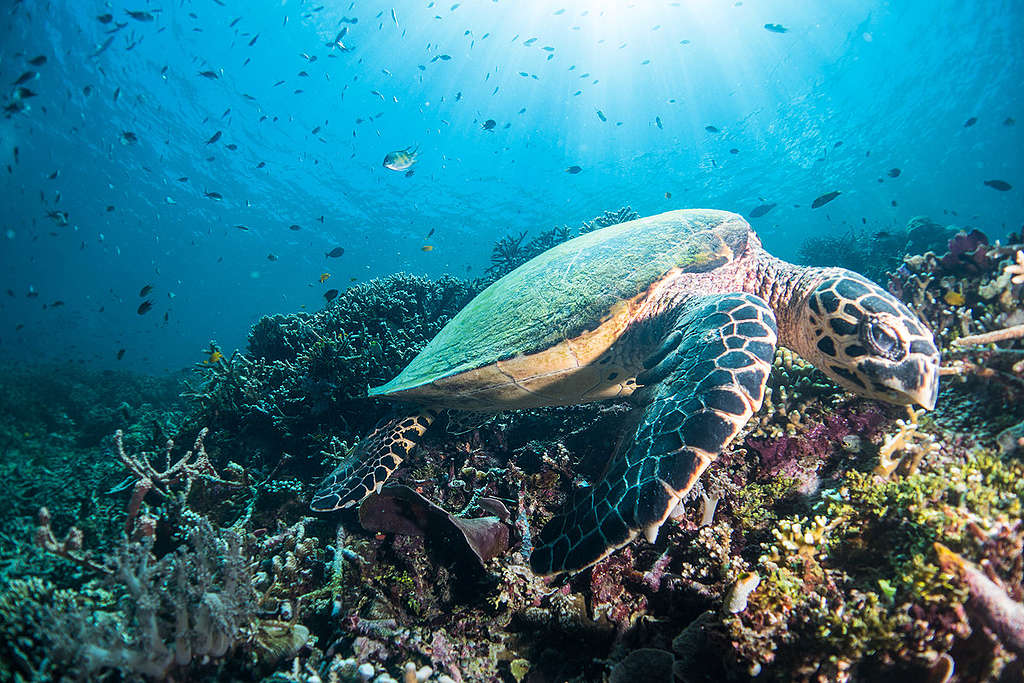
The threats facing our oceans are getting more urgent, find out how you can make a difference
Get Involved
